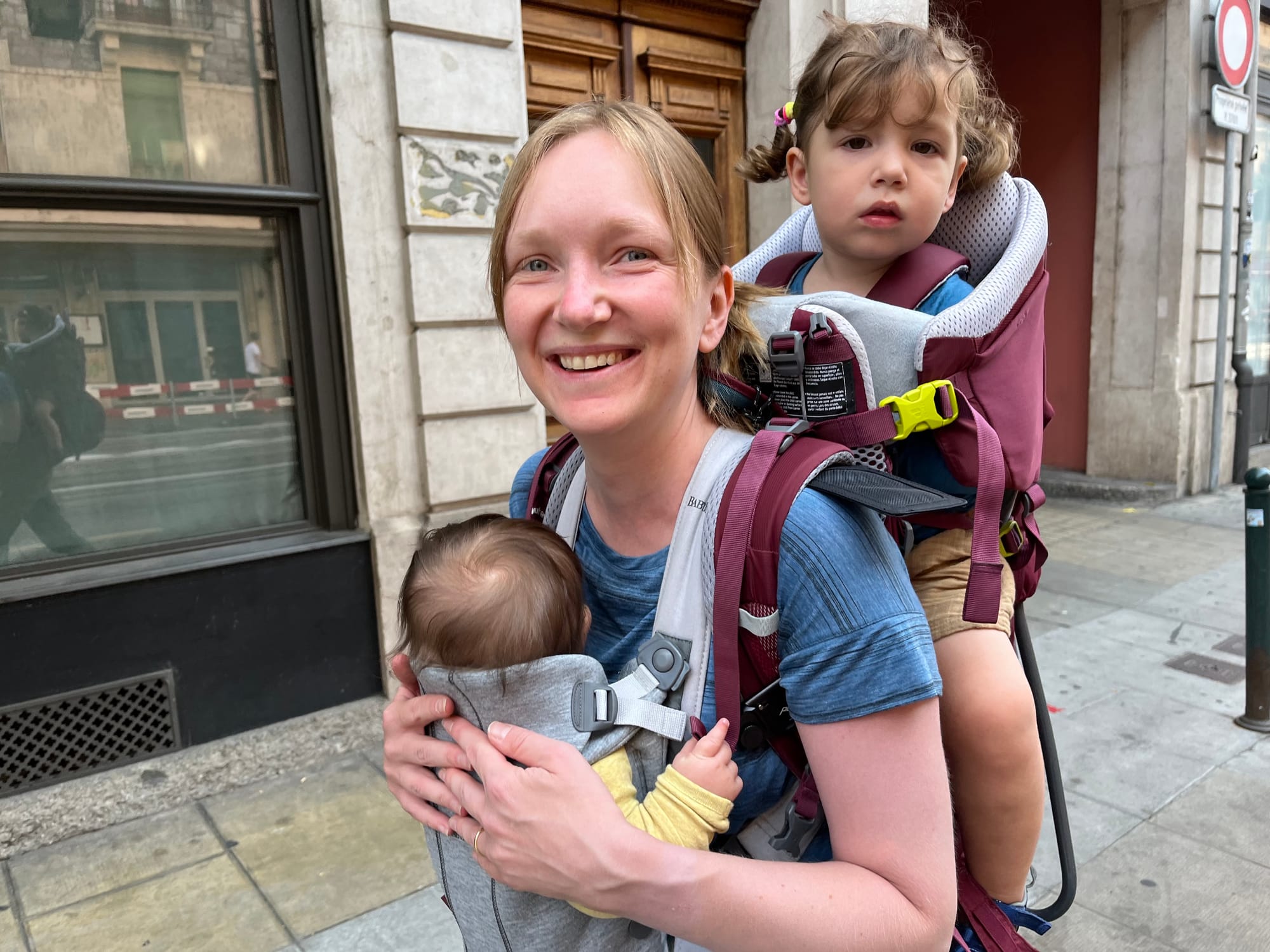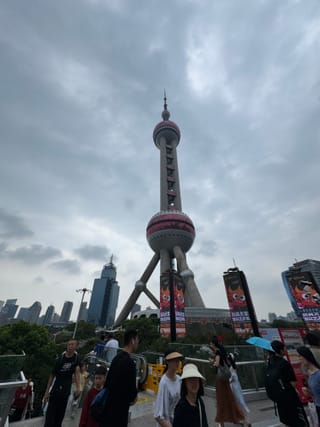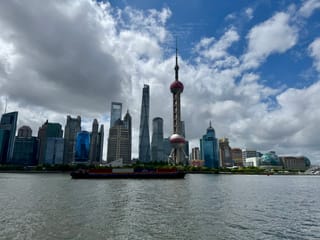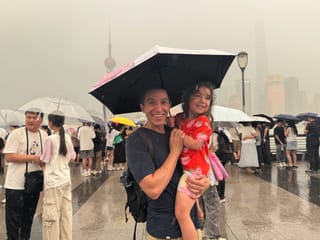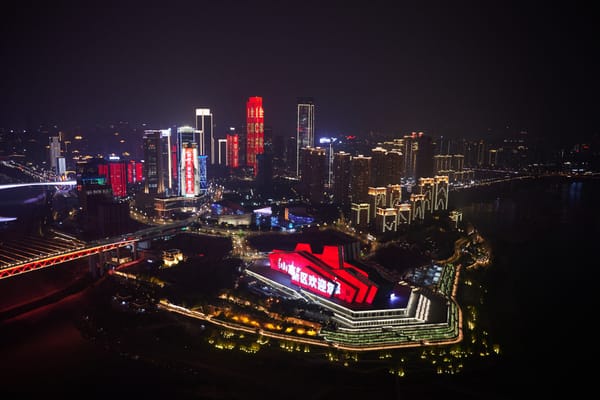
Chongqing Travel Guide (2025): Best Itinerary, Hotels, Things to Do
Your complete Chongqing travel guide for 2025 — best things to do, where to stay, itinerary ideas, food, and family-friendly tips.
Share this post:
Last updated: October 2025
Chongqing Travel Guide (2025)
Quick Summary
🗺️ Location: Central China
⏱️ Recommended Stay: 3-5 days
💲 Daily Budget: 50-100$
🌡️ Best Time: April-May, September-October
🏠 Best Area: Jiafengbei CBD
🚇 Getting Around: Metro
💡 Known For: Insane architecture, spicy food, Yangtze River Cruises
Table of content
When we were visiting China for the second time in 2024, Chongqing was still very much off our radar. We only started looking into visiting because my Mandarin teacher is originally from there and here local tips created a lot of fomo.
Fast-forward to 2025 and it seems like Chongqing is THE place to visit, with lots of posts popping up across social media, blogs and Youtube.
And I have to say, it doesn‘t surprise me — the city and its surroundings has so much to offer for photographers, independent explorers, foodies and nature lovers.
Join me to find out all you need to know to plan your trip to Chongqing.
🧳 Trip Planning Essentials
🛫 Flights, Trains & Hotels
Book everything in one place on Trip.com.
🎟 Tours & Tickets
Skip lines with GetYourGuide or Klook.
💰 Payments
AliPay and WeChat are a must — use it with Wise card to save on fees and get better conversion rates!
📱 Stay Connected
For cheaper data access use Saily eSIM. Pair with NordVPN to access blocked websites.
🚖 Airport Transfers
Traveling with luggage? Pre-book a private car pickup for a smooth arrival.
👉 See more China travel essentials
Why visit?
Chongqing is a city like no other — unique landscapes combined with technological and architectural ingenuity creates a vibrant city that just makes you want to explore.
Dubbed as a “Cyberpunk City“ it cap
What Makes Chongqing Special
- Dramatic Mountain Setting: Built across steep hills and mountains at the confluence of the Yangtze and Jialing Rivers, Chongqing's cityscape is a photographer's dream with its towering skyscrapers rising from misty mountain peaks. The cityscape at night, with buildings illuminated against the mountains, creates one of China's most spectacular urban views.
- Gateway to the Three Gorges: Chongqing serves as the starting point for Three Gorges cruises, offering easy access to one of China's most scenic natural wonders. These multi-day river journeys provide a perfect complement to your city exploration.
- Distinctive Food Culture: Home to authentic Sichuan cuisine and the famous Chongqing hotpot (different from its Sichuan cousin), the city is a paradise for food lovers. The spicy, numbing flavors create culinary experiences you simply won't find elsewhere.
- Fascinating Historical Contrast: As China's wartime capital during WWII, Chongqing balances ancient history (2,000+ years) with revolutionary heritage and hyper-modern development, creating a layered experience that tells China's story from ancient times to its future vision.
Who Will Love Chongqing
- Photography Enthusiasts: The combination of mountains, rivers, dramatic architecture, and atmospheric conditions (frequent mist and fog) creates incredible photography opportunities throughout the year.
- Foodies: If you enjoy bold flavors and authentic regional cuisine, Chongqing's food scene will be a highlight. The city's signature hotpot alone is worth the journey for culinary explorers.
- Families Seeking Something Different: While less visited by Western tourists than Beijing or Shanghai, Chongqing offers numerous family-friendly attractions, including unique cable cars, boat rides, and interactive museums that will engage children while providing a more authentic glimpse of modern Chinese life.
- Architecture & Urban Design Lovers: The city's solution to building a metropolis on mountainous terrain has resulted in fascinating urban innovations – including a light rail that goes through buildings, elevators connecting different city levels, and some of Asia's most creative modern architecture.
When to Consider Alternatives
- If you have limited time in China: First-time visitors with only 1-2 weeks might prioritize Beijing, Shanghai, and Xi'an before adding Chongqing to their itinerary.
- During summer heat waves: Chongqing is famous as one of China's "Three Furnaces" (alongside Wuhan and Nanjing), with July-August temperatures regularly exceeding 40°C (104°F) with high humidity. If you're sensitive to heat, consider visiting in spring or autumn.
- If you prefer well-established tourist infrastructure: While improving rapidly, English signage and international tourism facilities in Chongqing aren't as developed as in China's primary tourist destinations. This creates more authentic experiences but can also mean more navigation challenges.
Best time to visit
Chongqing is one of China’s “Three Furnaces” – summers are extremely hot and humid – so timing makes a big difference. In general:
- Spring (Mar–May) – Mild temperatures (≈15–25 °C), blooming flowers and misty mornings . Cherry blossoms at Nanshan and rapeseed flowers in Tongnan are highlights .
- Autumn (Sep–Nov) – Clear skies, warm days (~15–28 °C) and colourful foliage . Avoid the week around National Day (1–7 Oct) when domestic travel peaks .
- Summer (Jun–Aug) – Temperatures regularly exceed 40 °C with high humidity . Plan evening activities or escape to higher‑altitude areas (e.g., Fairy Mountain) .
- Winter (Dec–Feb) – 6–12 °C and often foggy ; a great time for hot springs near the city .
Aim for April–May or September–October for the most comfortable conditions .
We visited the city in March, and it was still relatively cold and foggy (Chongqing is known as the city of fog, so that might actually be common throughout the year) — so if you prefer walking around without a jacket, stick to later in the spring or early autumn.
However we were lucky to celebrate the Lantern Festival there and it was really beautiful experience.
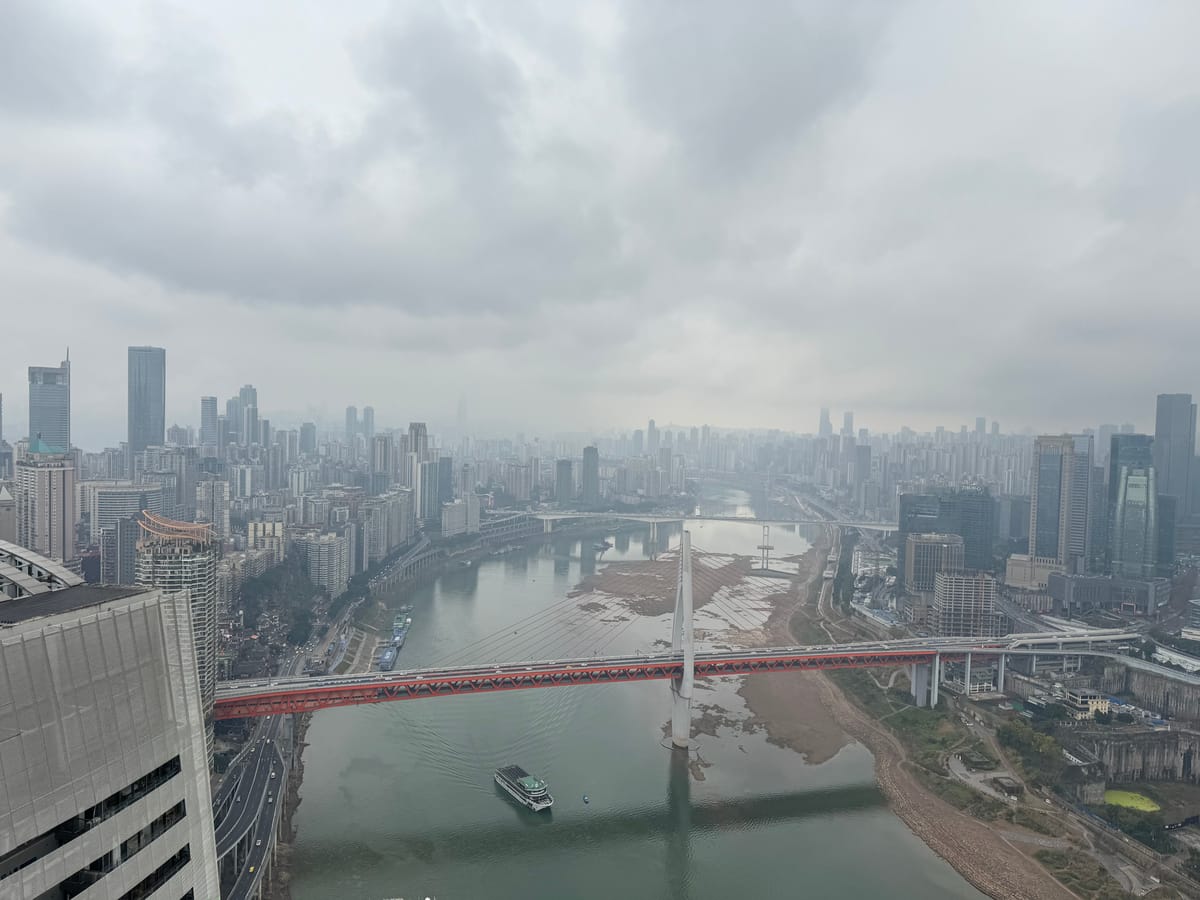
How to get there
By air
Chongqing Jiangbei International Airport (IATA CKG) is the city’s main gateway. It lies about 19 km north of downtown and handles direct flights from major Asian hubs and a growing number of intercontinental routes . From the airport you can reach the city by:
- Metro Line 10 – the cheapest and often fastest option; follow signs to the rail transit station.
- Airport shuttle bus – useful if your hotel is near People’s Square or Jiefangbei.
- Taxi or ride‑hailing – fares start around ¥10; use the official queue or DiDi app.
By high‑speed rail
China’s high‑speed network makes rail an easy option. Frequent trains link Chongqing to:
- Beijing – around 7 hours
- Shanghai – about 12 hours
- Xi’an – roughly 5 hours
- Chengdu – just 1.5 hours
Trains arrive at Chongqing North and Chongqing West stations; both are connected to the metro.
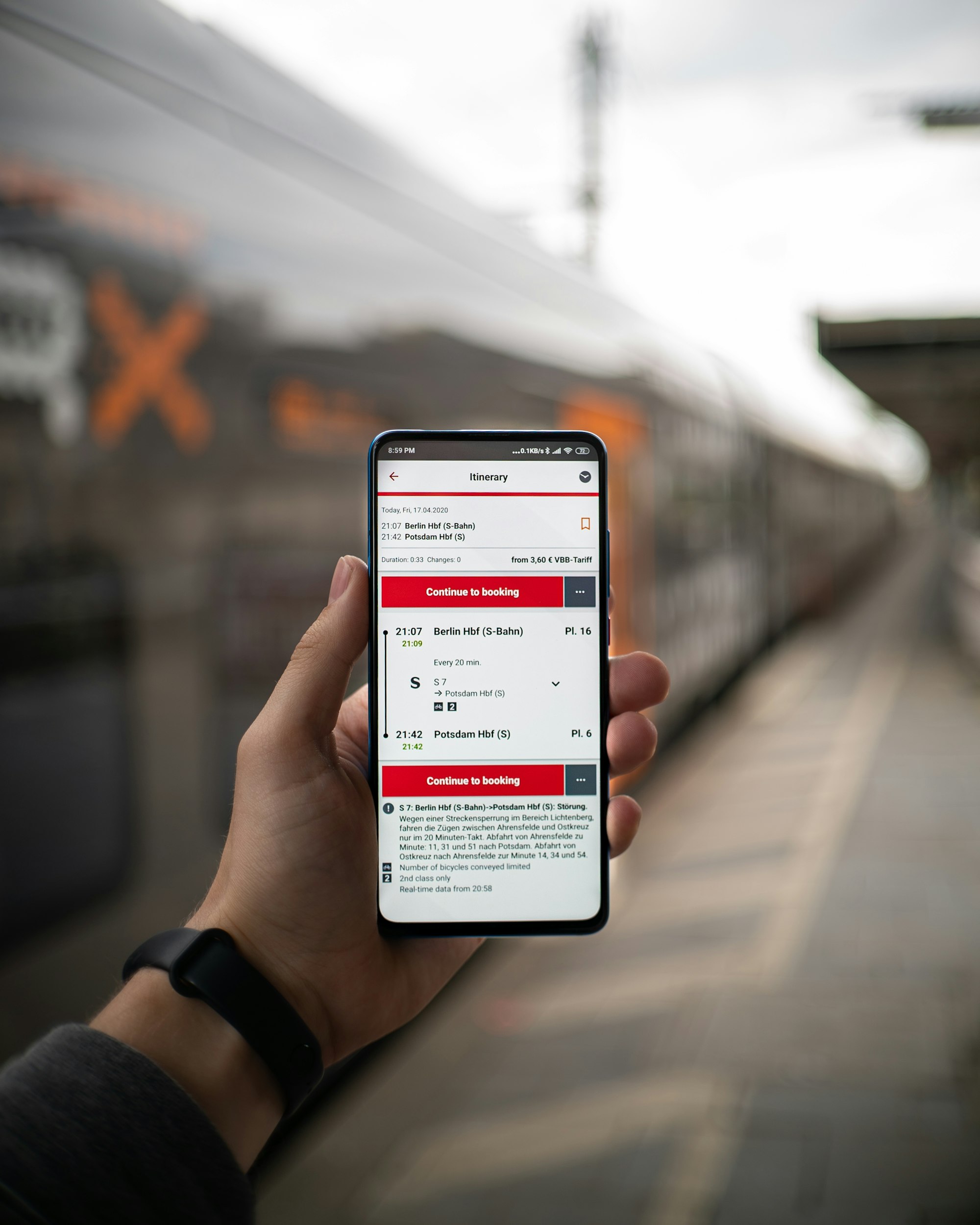
How to get around
Chongqing’s terrain makes exploring an adventure. The city has embraced creative transport solutions:
- Metro (CRT) – With over 13 lines, the network covers most attractions. Use AliPay app to scan QR codes for tickets and don’t miss Liziba Station on Line 2, where the monorail passes straight through an apartment building .
- Yangtze River Cableway – A scenic aerial tramway linking Yuzhong Peninsula and Nan’an. Rides cost about ¥20 and provide unbeatable views of the city skyline .
- River cruises – Evening cruises on the Yangtze and Jialing Rivers showcase the illuminated mountain city .
- Taxis and ride‑hailing – Use DiDi or official taxis; avoid rush hour traffic near Hongya Cave (7–9 PM) .
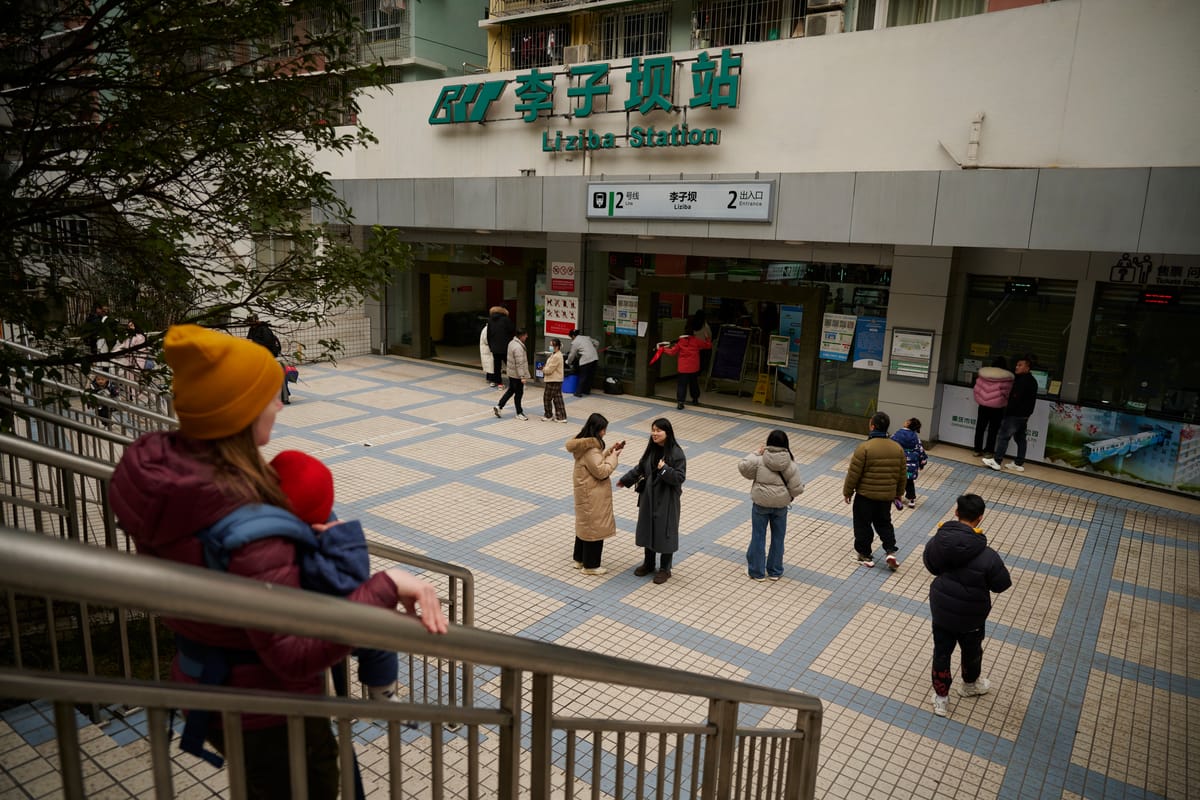
Where to stay
Best neighbourhoods
- Jiefangbei CBD: Best for first-time visitors seeking central location with excellent shopping, dining, and transportation options
- Nanbin Road/Nanping: Perfect for those wanting river views, slightly quieter atmosphere, and proximity to cable car experiences
- Hongyadong/Ciqikou: Ideal for culture enthusiasts and families who want traditional architecture and authentic local experiences
My top recommendation for Chongqing is to stay near Jiefangbei CBD, a busy commercial area with tons of street food options.
For a bit of luxury for a very good price, I recommend staying in or opposite the famous Raffles building - Ascott Raffles City Chongqing and InterContinental Raffles City Chongqing are both excellent options, with the first being better suited for families and the latter offering a bit of luxury for slightly higher price.
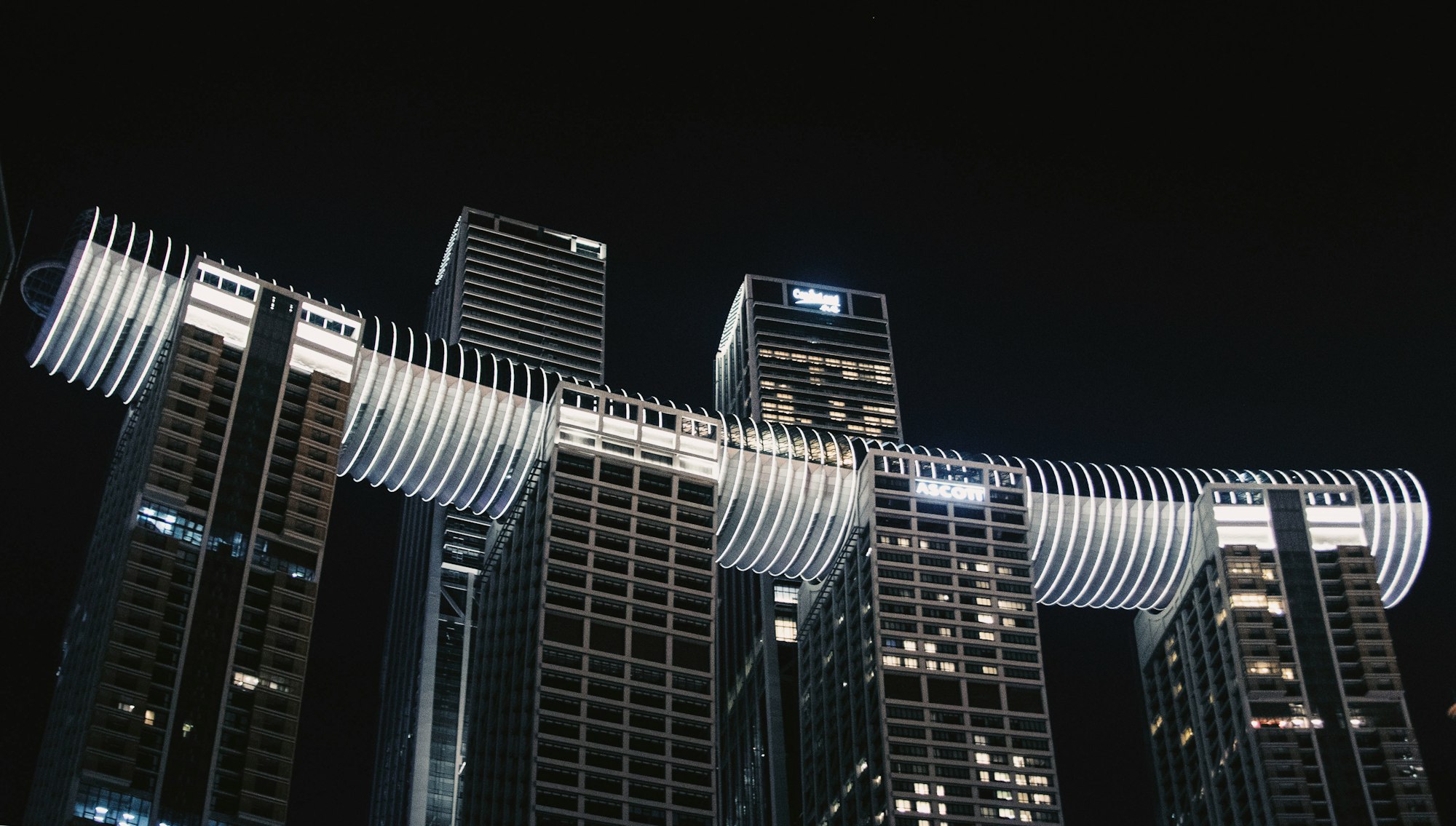
Things to do
Explore Hongya Cave
This iconic 10-story stilt house complex built into the mountainside offers stunning river views, traditional architecture, shops, restaurants, and spectacular night illumination.
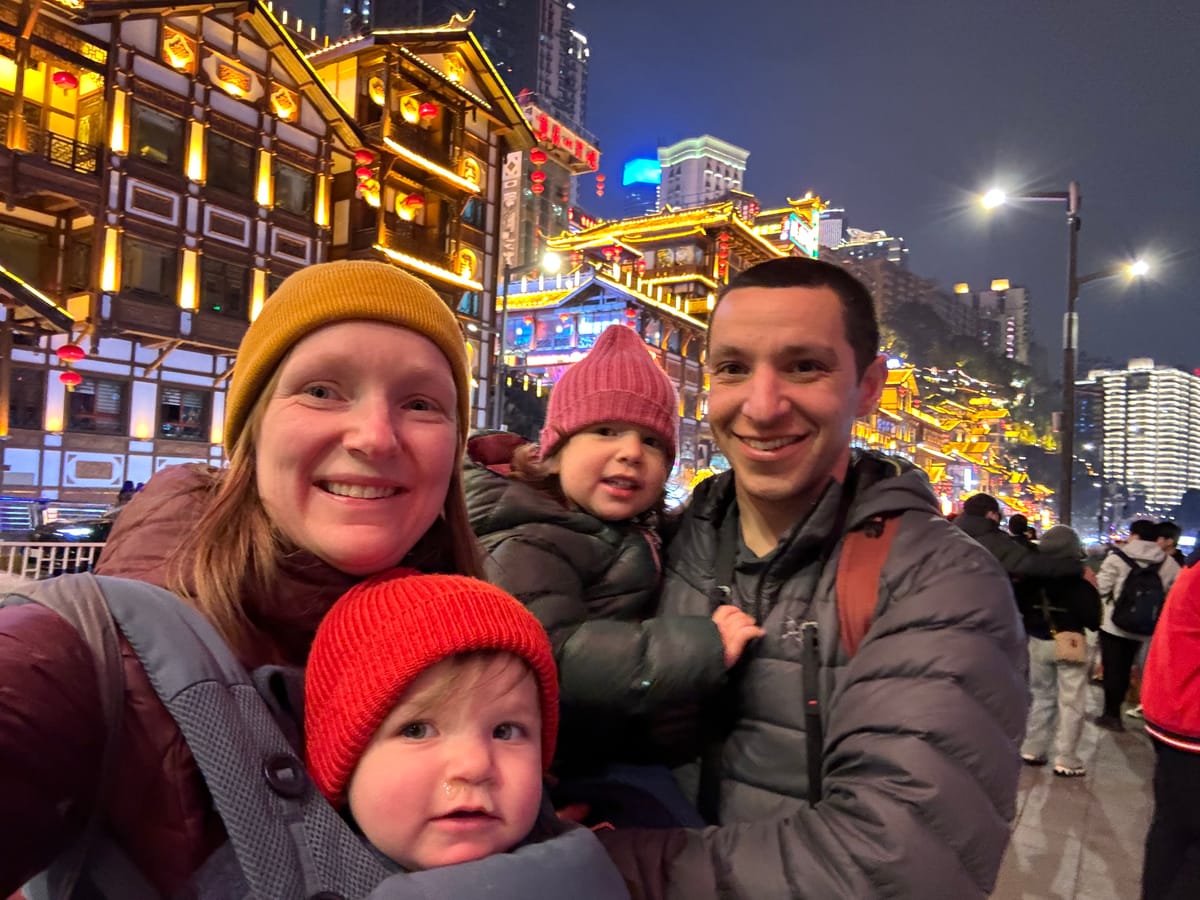
Experience Chongqing Hotpot
Sample the city's famous hotpot—distinctively different from Sichuan varieties with its intense numbing spice and rich variety of ingredients. An essential culinary experience for any visitor.
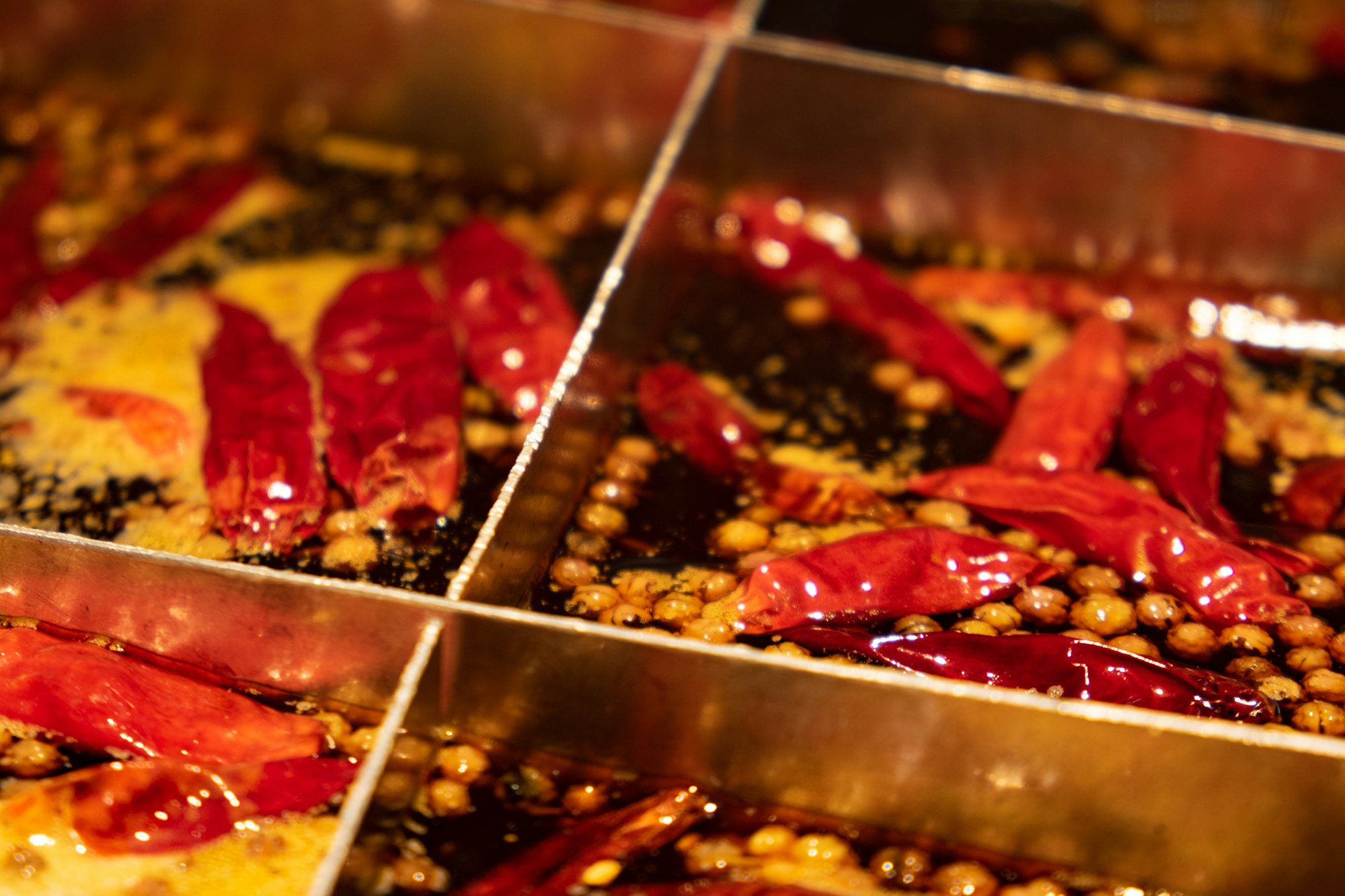
Visit Ciqikou Ancient Town
Wander through well-preserved Ming and Qing dynasty streets, exploring traditional teahouses, craft shops, and temples in this 1,000-year-old port town.
You can also catch a glimpse of the bian lian 变脸 („face changing“) performance, a unique art that is part of the traditional Sichuan opera.
Take a River Cruise
See the dramatic "Mountain City" from the water with an evening cruise along the Yangtze and Jialing Rivers, showcasing Chongqing's illuminated mountainous skyline.
Visit Graffitti Street
Huangjueping Graffiti Street is a fun place to visit for young and old. Bewilder at 1.25km of colourful street art and become an artist yourself with a 10 Yuan worth of paint and a paint brush!
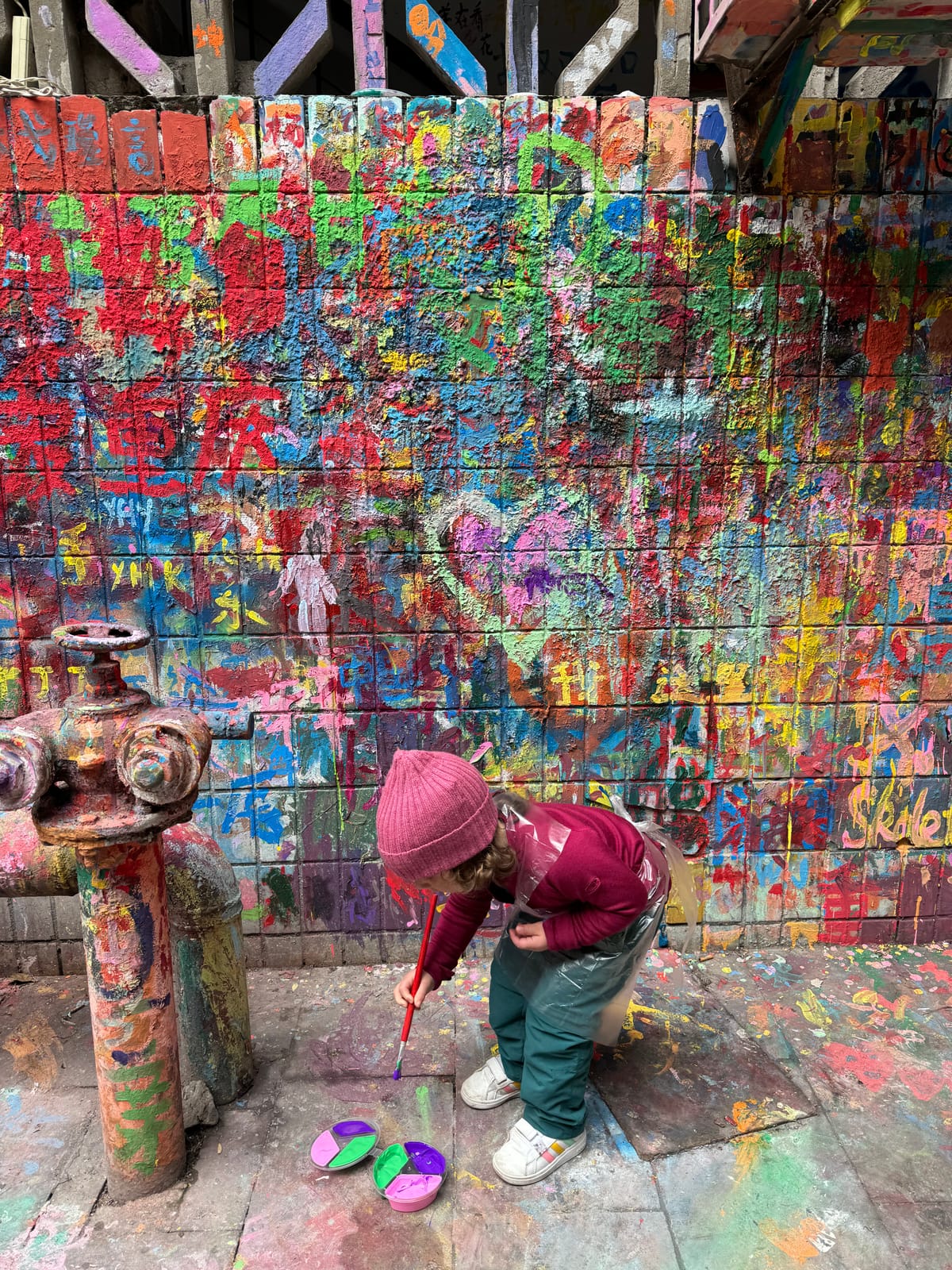
Marvel at the Crystal Sky Bridge
Visit this engineering wonder—a 300-meter horizontal skyscraper suspended between four towers—with its spectacular observation deck offering 360° panoramic views.
For the brave, there is a swing on the bridge that goes over the edge — while perfectly safe, it make your heart rate go up (my daughter didn‘t allow me to go, and I think I am grateful for that)
Take a day trip to hot springs
Tired of the busy city life? Take a break in one of the nearby hot springs.
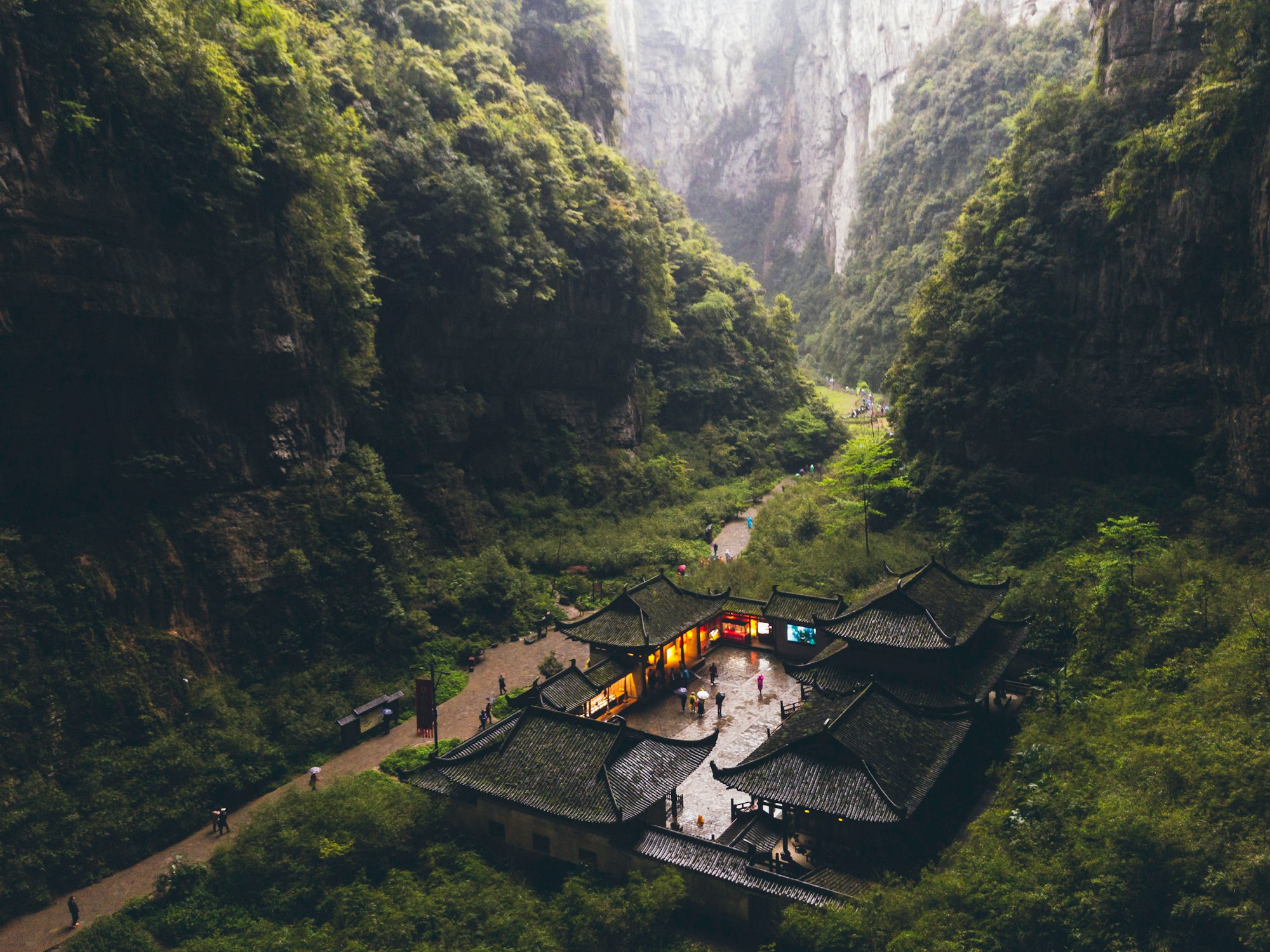
What to eat
Chongqing is a great place to visit for foodies — fragrant, spicy and full of flavour, with street food options available seemingly at every corner. While I feel like you almost don‘t need to look anything up in advance because there are just so many options (my Chinese teacher, Chongqing native, asked about where to eat hot pot replied simply “anywhere“, almost not understanding the question.
However, sometimes it is better to have something to start with, so here are some dishes to try out in Chongqing:
- Chongqing xiaomian 重庆小面 (spicy noodles)
- Shaokao 烧烤 (Chinese barbeque)
- Kaoyu 烤鱼 (whole grilled fish)
- Shaguo mixian 砂锅米线 (rice noodles in a pot)
- Chongqing hot pot 火锅
Chongqing hot pot is the most important dish to try in Chongqing, and the most intimidating so here is some further reading that will prepare you for a visit in a hot pot restaurant.
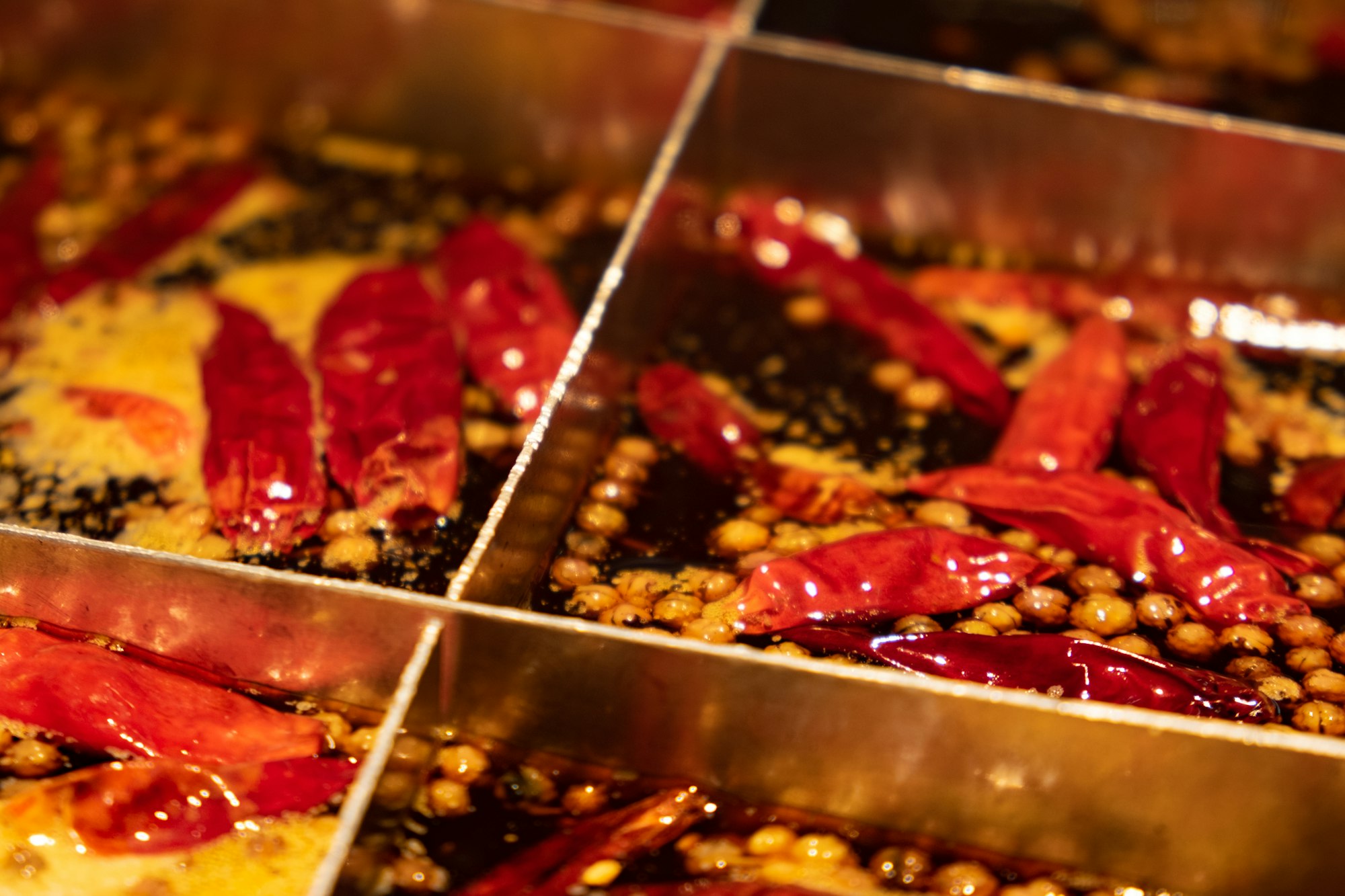
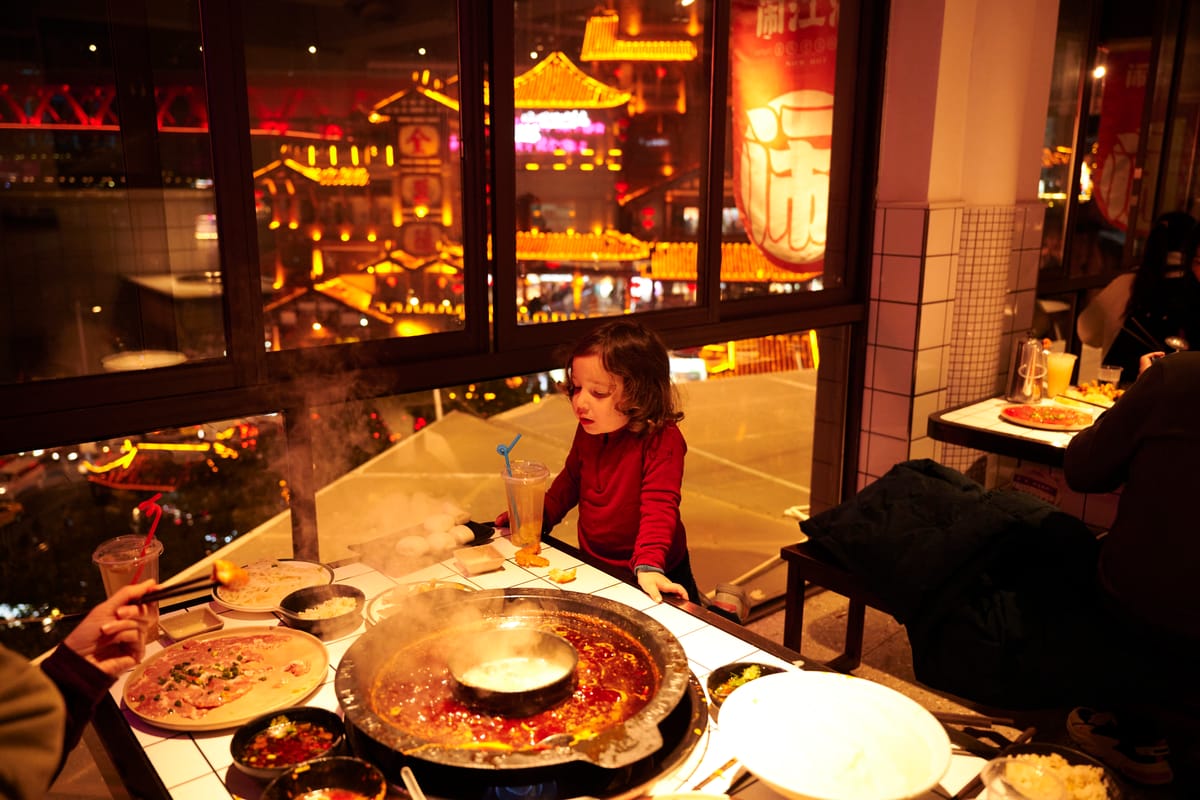
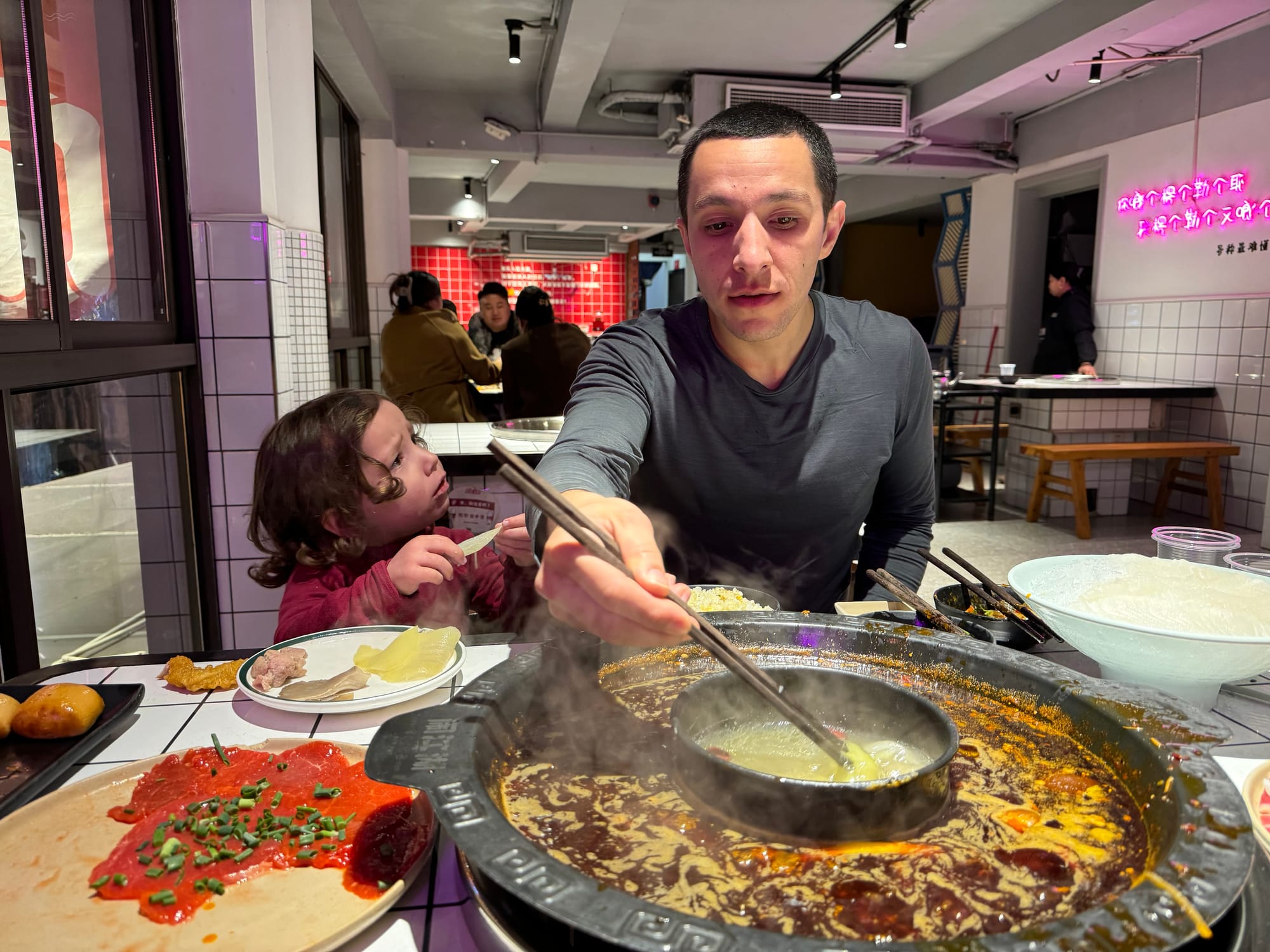
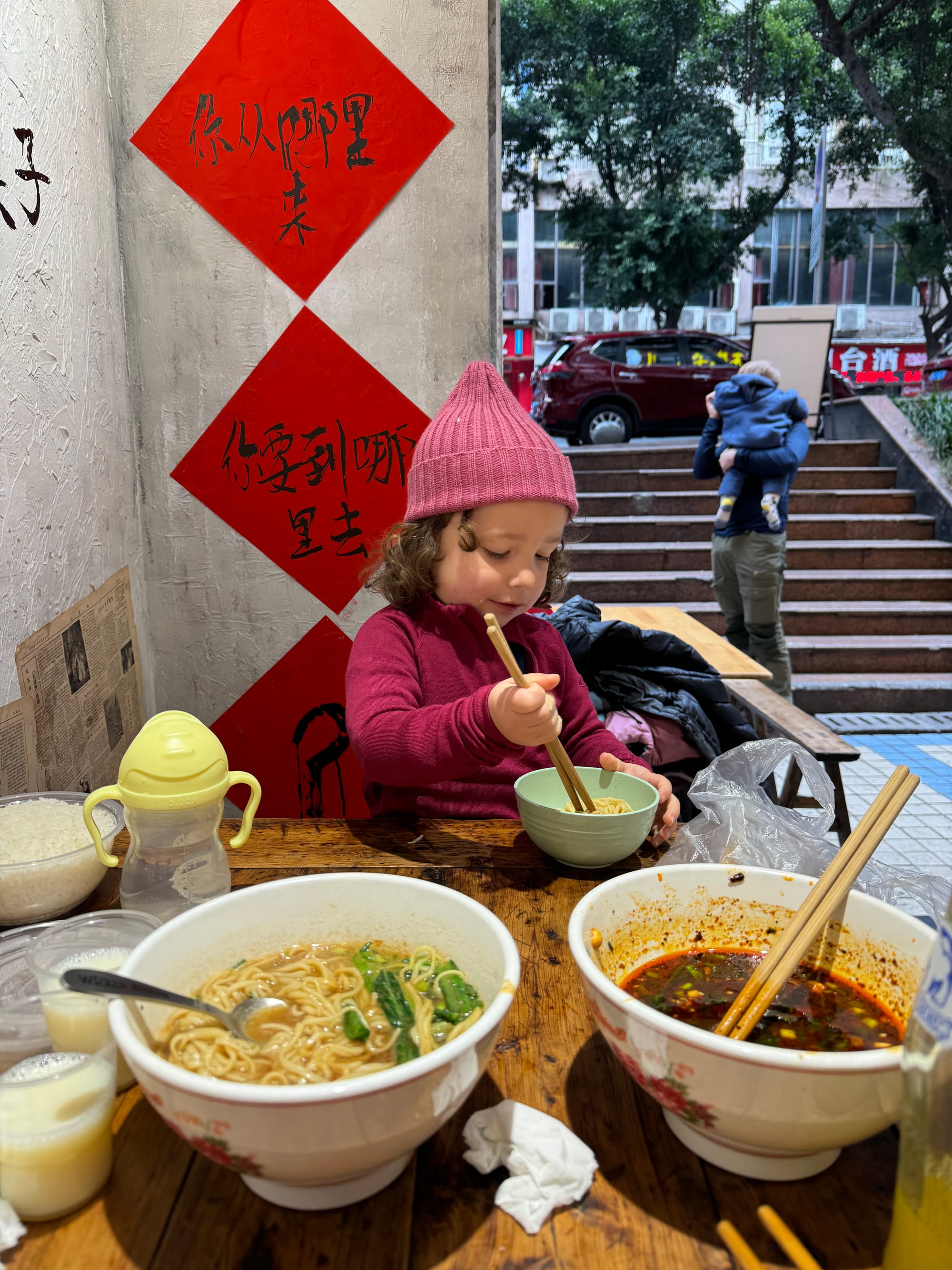
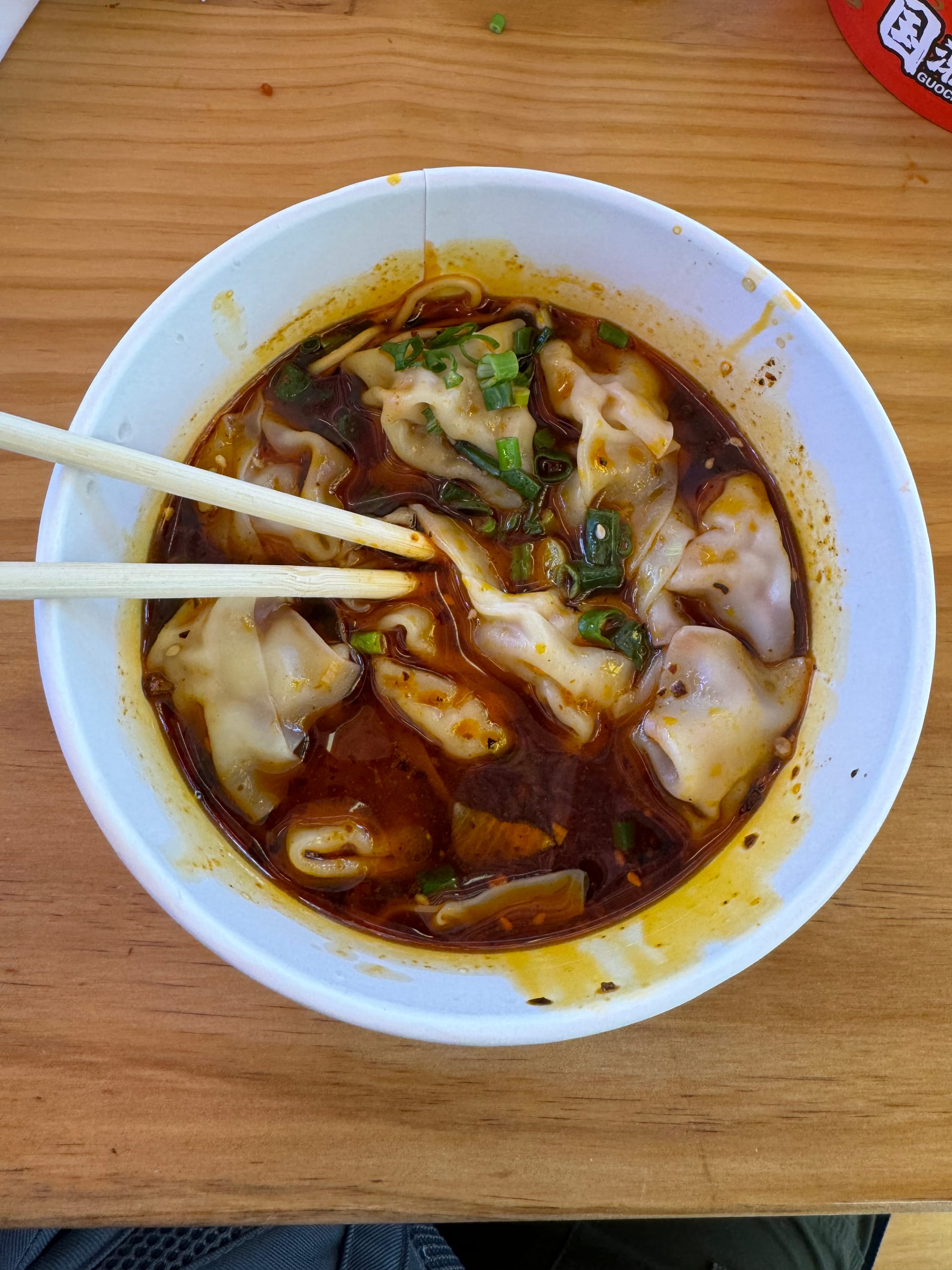
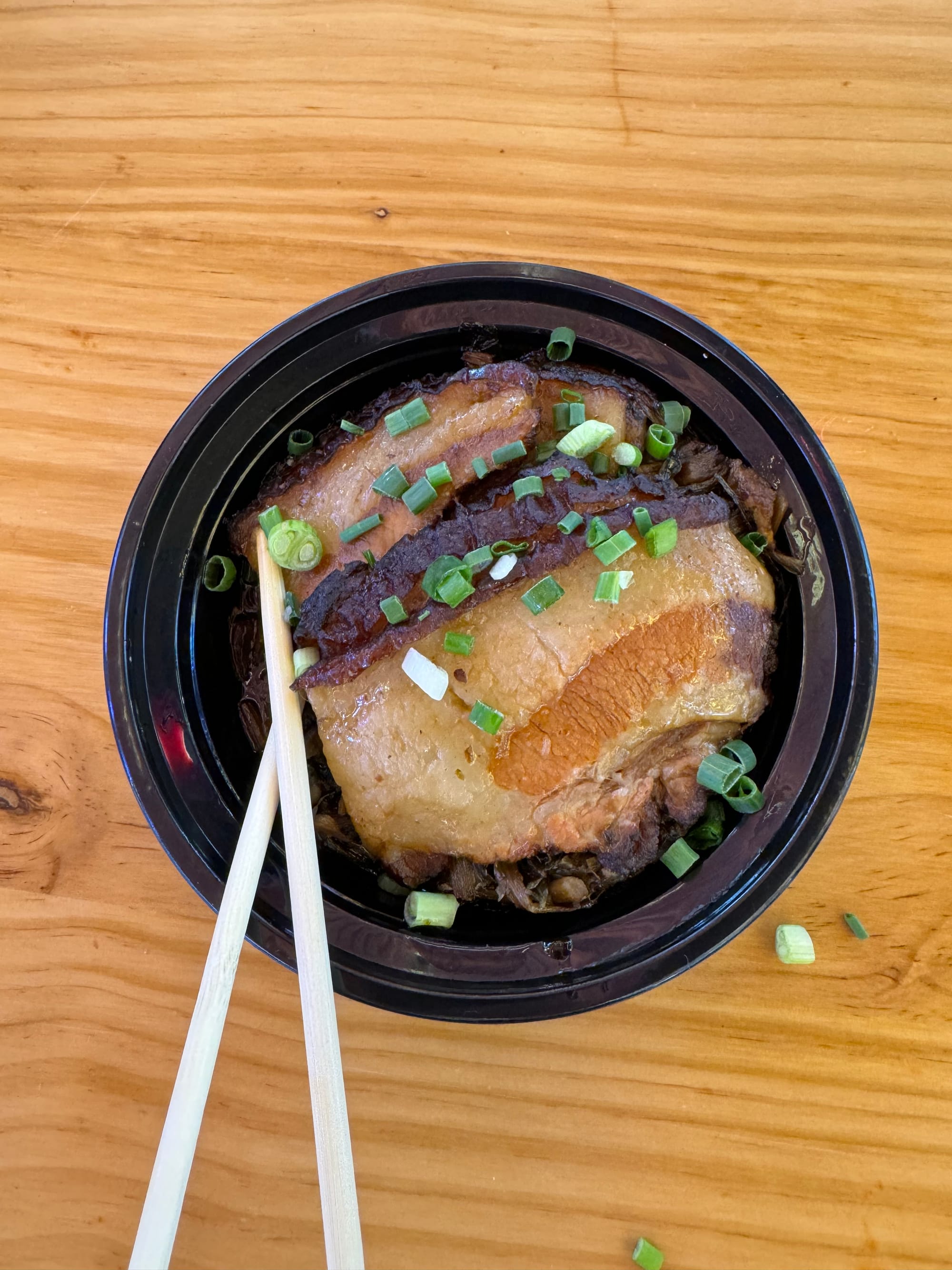
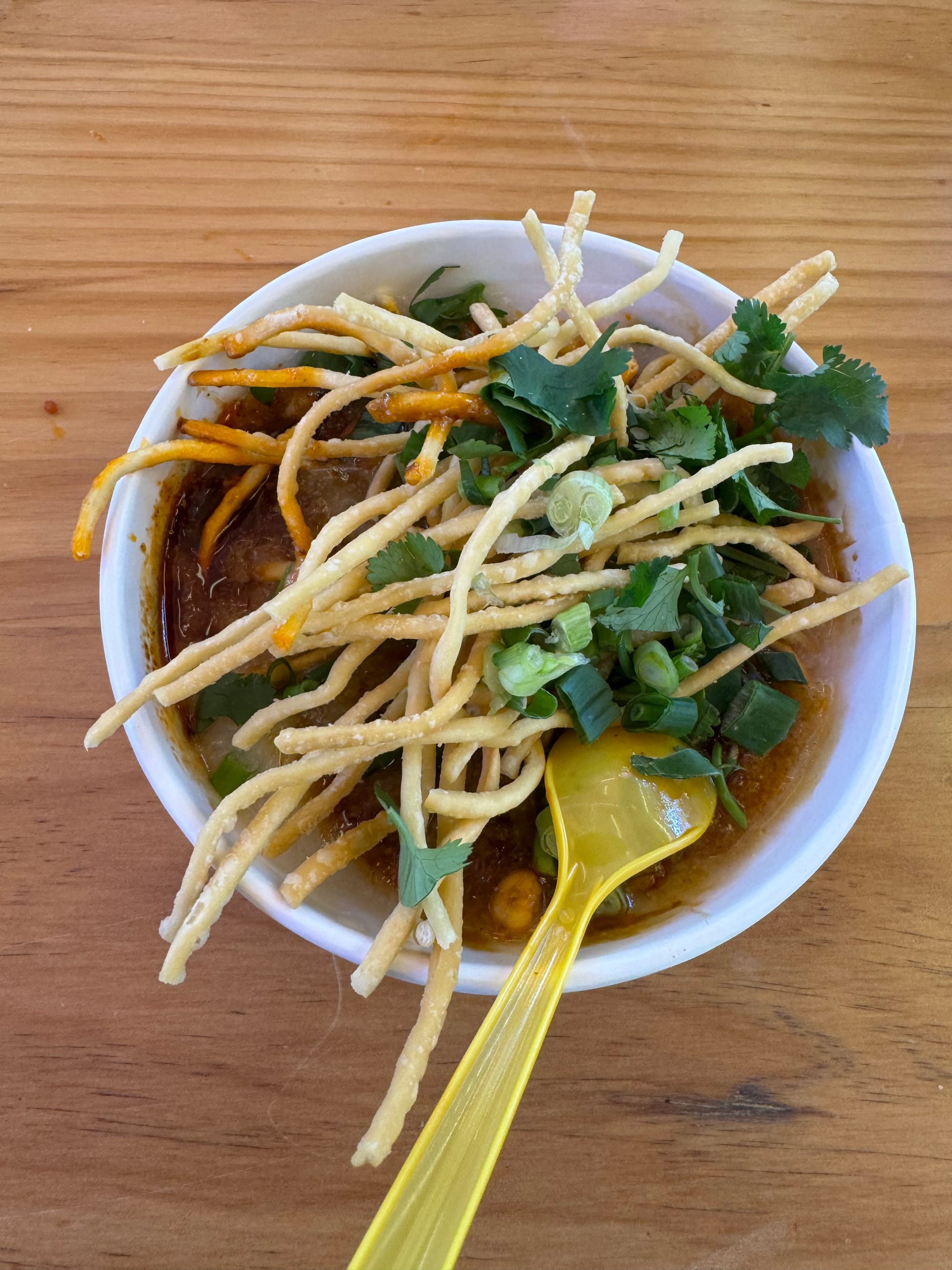
Itinerary ideas
If you are confused where to start planning your trip to Chongqing, here are some itinerary ideas.
1-Day Essential Chongqing
- Morning: Explore Jiefangbei CBD and People's Square, visit Hongya Cave stilt houses
- Afternoon/Evening: Take a Yangtze River Cableway ride, enjoy authentic Chongqing hotpot, experience an evening river cruise to see the illuminated skyline
2-Day Chongqing Experience
Day 1: City Highlights
- Morning: Visit Jiefangbei CBD and Liberation Monument, explore Hongya Cave
- Afternoon/Evening: Cross the Yangtze by cable car, enjoy a river cruise, experience Chongqing hotpot
Day 2: Culture & History
- Morning: Explore Ciqikou Ancient Town, visit local teahouses and sample street food
- Afternoon/Evening: Tour the Three Gorges Museum, enjoy sunset views from Nanshan Mountain
3-Day Complete Chongqing
Day 1: Urban Exploration
- Morning: Discover Jiefangbei CBD and Hongya Cave stilt houses
- Afternoon/Evening: Take the river cableway, enjoy evening river cruise with city lights
Day 2: Cultural Immersion
- Morning: Explore Ciqikou Ancient Town's narrow alleys and traditional architecture
- Afternoon/Evening: Visit Three Gorges Museum, experience Chongqing hotpot dinner
Day 3: Modern Marvels & Nature
- Morning: Marvel at Raffles City's Crystal Sky Bridge and observation deck
- Afternoon/Evening: Enjoy Nanshan Mountain views, sample local street food at Guanyinqiao Food Street
Family-Friendly Adjustments
Skip heavy walking days and complement your sightseeing with Chongqing Zoo (famous for pandas) or a break in an indoor playground (like Neobio).
More about visiting Chongqing with kids:
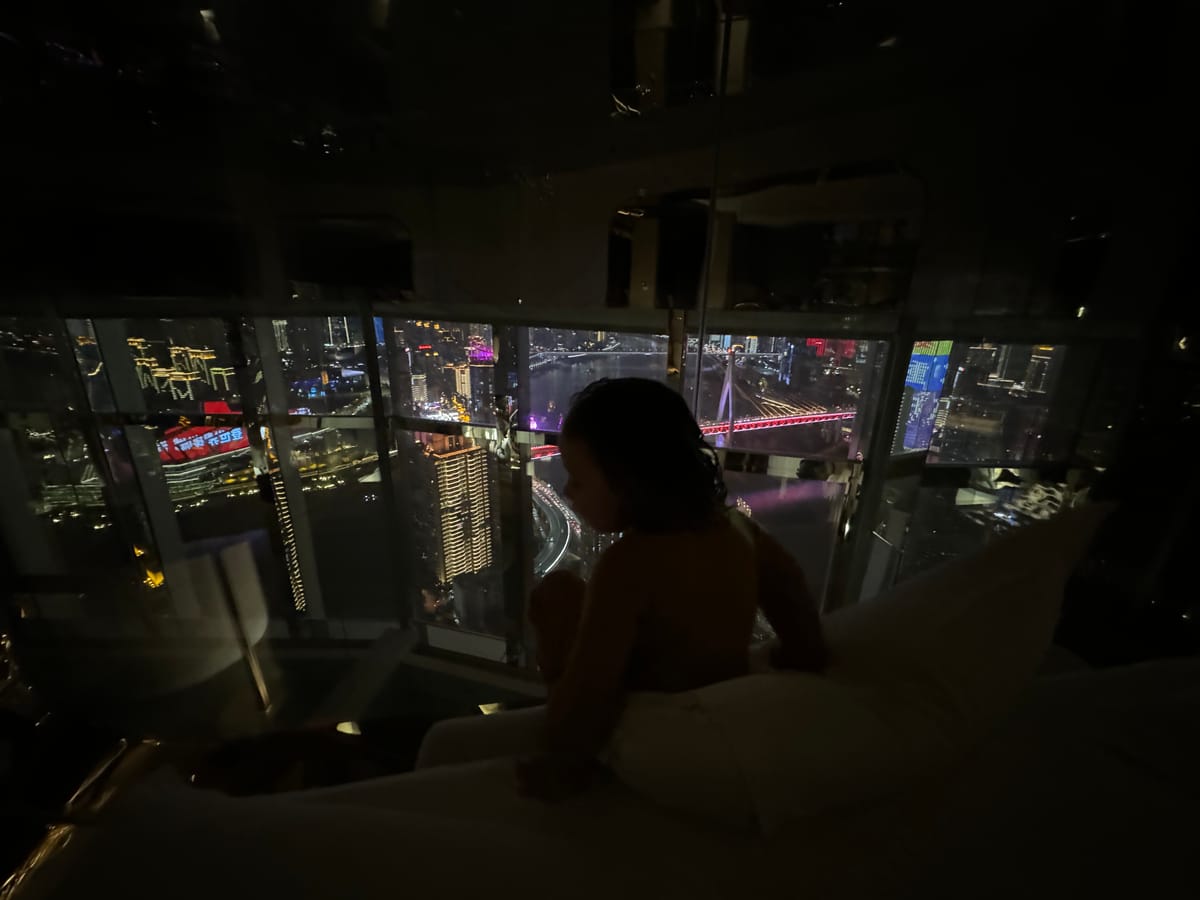
FAQs
Is Chongqing worth visiting?
Yes, Chongqing is absolutely worth visiting for its unique mountain city landscape, spectacular river views, famous spicy cuisine, and blend of ultramodern architecture with ancient cultural sites. As China's largest municipality and gateway to the Three Gorges region, Chongqing offers visitors a dramatic cityscape unlike any other, with skyscrapers built across steep mountains intersected by the Yangtze and Jialing rivers.
How many days do you need to visit Chongqing?
4-5 days is the ideal duration for visiting Chongqing. This allows sufficient time to explore the city center attractions (Jiefangbei, Hongya Cave), experience cultural sites (Ciqikou Ancient Town), enjoy the famous Chongqing hotpot, take a river cruise, and visit modern architectural wonders like the horizontal skyscraper at Raffles City. With 3 days, focus on central attractions; with 5+ days, add day trips to surrounding areas, e.g. visit one of the surrounding hot springs.
What is Chongqing most famous for?
Chongqing is most famous for four distinctive features: its spicy Chongqing hotpot (different from Sichuan hotpot), its dramatic mountain city landscape built on steep hills, being the gateway to the Three Gorges Dam, and its reputation as one of China's "Three Furnaces" due to extremely hot summers. The city is also known for its unique transportation solutions including escalators and elevators that connect different levels of the mountainous urban terrain.
What is the best time to visit Chongqing?
The best time to visit Chongqing is during spring (March-May) and fall (September-November) when temperatures are pleasant (15-25°C) and conditions are ideal for exploring. Summer (June-August) is extremely hot and humid with temperatures reaching 40°C, while winter (December-February) is mild but foggy and damp. April and October offer optimal weather conditions with clear skies and comfortable temperatures.
Is Chongqing or Chengdu better to visit?
Chongqing and Chengdu offer complementary but different experiences. Chongqing impresses with its dramatic mountain cityscape, river views, and urban innovation, while Chengdu is known for a more relaxed pace, pandas, and traditional Sichuan culture.
Visit Chongqing if you prefer dynamic urban landscapes and architectural wonders; choose Chengdu for a more laid-back experience with easier access to pandas and ancient sites. Ideally, visit both cities (connected by a 1.5-hour high-speed train) for a complete Southwest China experience.
Ready to Plan Your Chongqing Adventure?
✈️ Book your flights
🏨 Find family-friendly hotels
🚂 Reserve train tickets
🎫 Book kid-friendly activities
🚌 Book a tour











